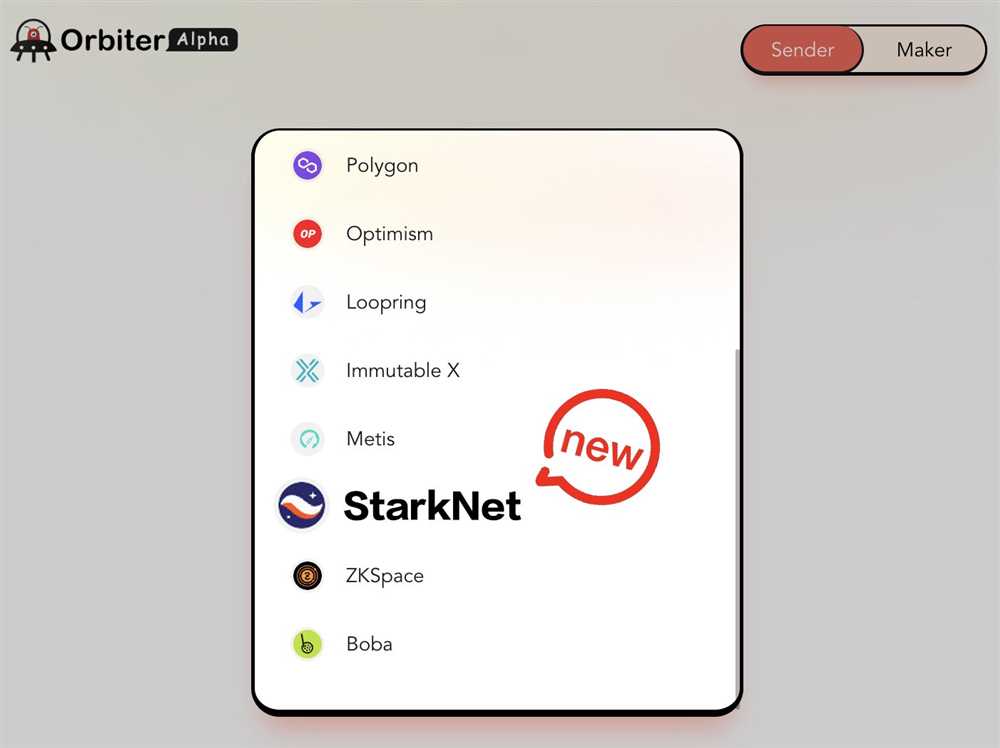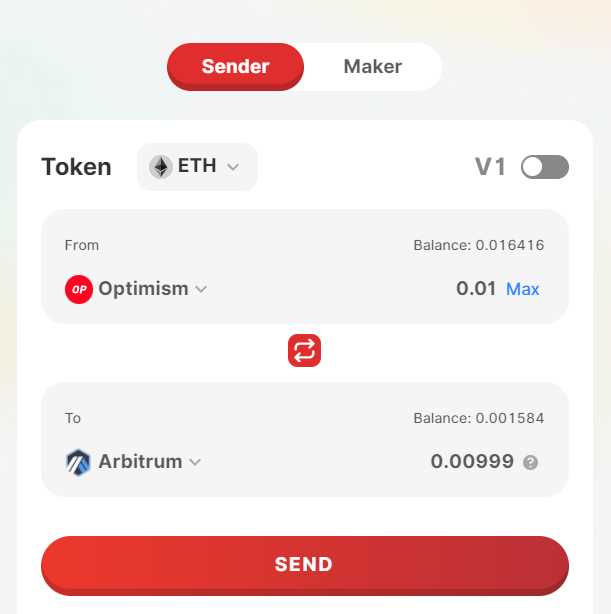
Diving into Orbiter Finance’s Security Model for Three Varieties of Smart Contracts

Orbiter Finance, a leading blockchain platform, has gained significant attention for its innovative approach to decentralized finance. One of the key features that sets Orbiter Finance apart is its three types of smart contracts that provide enhanced security and protection for users. In this article, we will delve into the security model of these smart contracts and explore how they ensure the integrity and confidentiality of user transactions.
The first type of smart contract offered by Orbiter Finance is the Standard Contract. This contract includes basic functionalities such as fund transfers and token swaps. While it provides a solid foundation for financial transactions, the security measures embedded in the Standard Contract are not as robust as those in the other two types of contracts.
For users seeking an extra layer of security, Orbiter Finance offers the Vault Contract. This contract incorporates advanced security protocols and encryption techniques to protect user assets. Key features of the Vault Contract include multi-signature transactions, time-locks, and auditing mechanisms. With these additional security measures, users can have peace of mind knowing that their funds are stored securely and can only be accessed under specific conditions.
The third type of smart contract provided by Orbiter Finance is the Shielded Contract. As the name suggests, this contract offers the highest level of privacy and confidentiality for user transactions. Powered by cutting-edge cryptographic technologies, the Shielded Contract ensures that sensitive information remains hidden from prying eyes. Confidential transactions, zero-knowledge proofs, and stealth addresses are some of the security features integrated into the Shielded Contract, making it an ideal choice for users who prioritize privacy.
Overall, Orbiter Finance’s three types of smart contracts demonstrate a strong commitment to security and privacy. Whether users opt for the Standard Contract, Vault Contract, or Shielded Contract, they can be confident in the platform’s ability to protect their assets and sensitive information. By combining advanced security measures with innovative blockchain technology, Orbiter Finance has set a new standard for secure decentralized finance.
Overview of Orbiter Finance

Orbiter Finance is a decentralized finance (DeFi) protocol that aims to provide a secure and efficient platform for users to engage in various financial activities. The platform is built on the Ethereum blockchain and utilizes smart contracts to automate and facilitate transactions.
The primary objective of Orbiter Finance is to provide users with a secure and transparent environment for accessing financial services. The platform offers three types of smart contracts, each with its own distinct features and purposes:
| Smart Contract Type | Description |
|---|---|
| Lending | This smart contract allows users to borrow or lend digital assets on the platform. It ensures that all transactions are executed securely and that borrowers meet the necessary collateral requirements. |
| Staking | By staking their tokens, users can earn passive income in the form of interest or rewards. This smart contract ensures fair and transparent distribution of rewards and incentivizes users to hold and support the network. |
| Insurance | This smart contract provides protection against potential risks and liabilities. Users can purchase insurance coverage for their assets, mitigating the impact of unforeseen events. |
Orbiter Finance prioritizes security and aims to minimize the risk of vulnerabilities and attacks. The smart contracts undergo rigorous audits and security assessments to ensure that they are reliable and secure. Additionally, the platform implements various security measures, such as multi-signature wallets and insurance funds, to safeguard user funds.
With its user-friendly interface and comprehensive range of financial services, Orbiter Finance is poised to revolutionize the DeFi ecosystem and empower users to take control of their finances in a secure and efficient manner.
Security Model of Orbiter Finance’s Regular Smart Contracts

Orbiter Finance’s regular smart contracts are designed with a strong emphasis on security to protect the funds and assets of users. The security model of these smart contracts includes several important components:
1. Code Audits: Before deployment, Orbiter Finance’s regular smart contracts undergo thorough code audits by reputable and trusted third-party auditors. These audits help to identify any potential vulnerabilities or weaknesses in the contract code and ensure that it meets high security standards.
2. Formal Verification: Orbiter Finance employs formal verification techniques to mathematically prove the correctness and security of their regular smart contracts. Formal verification helps to eliminate any potential bugs or vulnerabilities that could compromise the security of the contracts.
3. Secure Development Practices: Orbiter Finance follows industry best practices in smart contract development to minimize the risk of security vulnerabilities. This includes using secure coding techniques, conducting extensive testing and peer reviews, and implementing proper error handling and exception handling mechanisms.
4. Timelock Mechanism: Orbiter Finance’s regular smart contracts include a timelock mechanism that introduces a delay period before any critical actions, such as transferring funds or making changes to the contract logic, can be executed. This timelock mechanism provides an extra layer of protection against potential attacks and allows users to react and respond in case of any unexpected events.
5. Bug Bounty Program: Orbiter Finance operates a bug bounty program that encourages the community to discover and report any security vulnerabilities or bugs in their regular smart contracts. This program incentivizes security researchers to actively search for weaknesses and helps to improve the overall security of the contracts.
By implementing these security measures, Orbiter Finance aims to provide a secure and robust ecosystem for users to interact with their regular smart contracts. Users can have confidence that their funds and assets are well-protected and that the contracts have been thoroughly audited and verified for security.
Security Model of Orbiter Finance’s Insurance Smart Contracts

Orbiter Finance’s insurance smart contracts are designed to provide a secure and reliable mechanism for managing insurance policies and claims. The security model of these contracts includes several robust features that ensure the integrity and accuracy of the insurance process.
One of the key security features is the use of cryptographic algorithms to secure the transfer and storage of sensitive data. This includes encrypting policy details, claim information, and user identities to prevent unauthorized access or tampering. Additionally, cryptographic signatures are used to verify the authenticity of the data and ensure that it has not been altered.
Another important aspect of the security model is the use of access controls and permissions. Only authorized parties have the ability to interact with the insurance smart contracts and perform certain actions, such as issuing policies or filing claims. This helps prevent malicious actors from exploiting vulnerabilities in the system and ensures that only approved transactions are executed.
The insurance smart contracts also incorporate auditing and logging mechanisms to track all interactions and changes within the system. This allows for transparent and accountable processes, as well as the ability to identify and investigate any suspicious activity. These logs can be used as evidence in case of disputes or legal proceedings.
Furthermore, the contracts are designed to be immutable and resistant to tampering. Once deployed on the blockchain, the code and logic of the contracts cannot be altered or modified. This ensures that the terms and conditions of the insurance policies remain enforceable and unchanged throughout their duration.
To enhance the security of the insurance smart contracts, Orbiter Finance conducts thorough testing and auditing processes. This includes code reviews, penetration testing, and third-party audits to identify and address any potential vulnerabilities or weaknesses in the system.
In conclusion, Orbiter Finance’s insurance smart contracts leverage cryptographic algorithms, access controls, auditing mechanisms, immutability, and rigorous testing to provide a secure and trustworthy platform for managing insurance policies. These security measures enable users to rely on the system for the accurate and transparent handling of their insurance needs.
Security Model of Orbiter Finance’s Production Smart Contracts

Security is a crucial aspect of any financial system, and Orbiter Finance takes it very seriously. In order to ensure the safety and integrity of its users’ funds, Orbiter Finance has implemented a comprehensive security model for its production smart contracts.
First and foremost, Orbiter Finance’s smart contracts are built on the Ethereum blockchain, which provides a robust and secure environment for executing transactions. The decentralized nature of the blockchain ensures that the system is not controlled by a single entity, making it more resistant to attacks.
In addition, Orbiter Finance’s production smart contracts have undergone a thorough security audit conducted by third-party experts. This audit helps identify potential vulnerabilities and weaknesses in the code, allowing for their timely remediation. The results of the audit are regularly reviewed and used to improve the security of the smart contracts.
Furthermore, Orbiter Finance follows industry best practices when it comes to smart contract development. The code is written using secure coding standards and undergoes rigorous testing and review processes. This helps mitigate common security risks such as reentrancy attacks, integer overflow, and unauthorized access.
Orbiter Finance also implements a multi-signature wallet system for controlling the smart contract’s funds. This means that multiple authorized parties are required to sign off on a transaction, adding an extra layer of security. In the event of a security breach, this mechanism helps prevent unauthorized access to the users’ funds.
Moreover, Orbiter Finance has implemented a decentralized governance model that allows token holders to play an active role in the decision-making process. This ensures that any changes to the smart contracts or the system as a whole are transparent and approved by the community, reducing the risk of malicious actions.
Overall, Orbiter Finance’s security model for its production smart contracts combines various measures to protect the users’ funds and ensure the integrity of the system. By following industry best practices, conducting regular security audits, and utilizing the features of the Ethereum blockchain, Orbiter Finance strives to maintain a high level of security for its users.
Question-answer:
What is the security model of Orbiter Finance’s smart contracts?
The security model of Orbiter Finance’s smart contracts is designed to provide a robust and secure infrastructure for decentralized finance operations. It includes features such as access control mechanisms, code audits, and bug bounty programs.
How are Orbiter Finance’s smart contracts audited?
Orbiter Finance’s smart contracts undergo regular code audits conducted by external firms to identify and mitigate potential security vulnerabilities. These audits help ensure that the smart contracts are secure and reliable for users.
What are the three types of smart contracts provided by Orbiter Finance?
Orbiter Finance provides three types of smart contracts: liquidity pool contracts, yield farming contracts, and staking contracts. Each of these contracts serves a specific purpose in the platform’s decentralized finance ecosystem.


